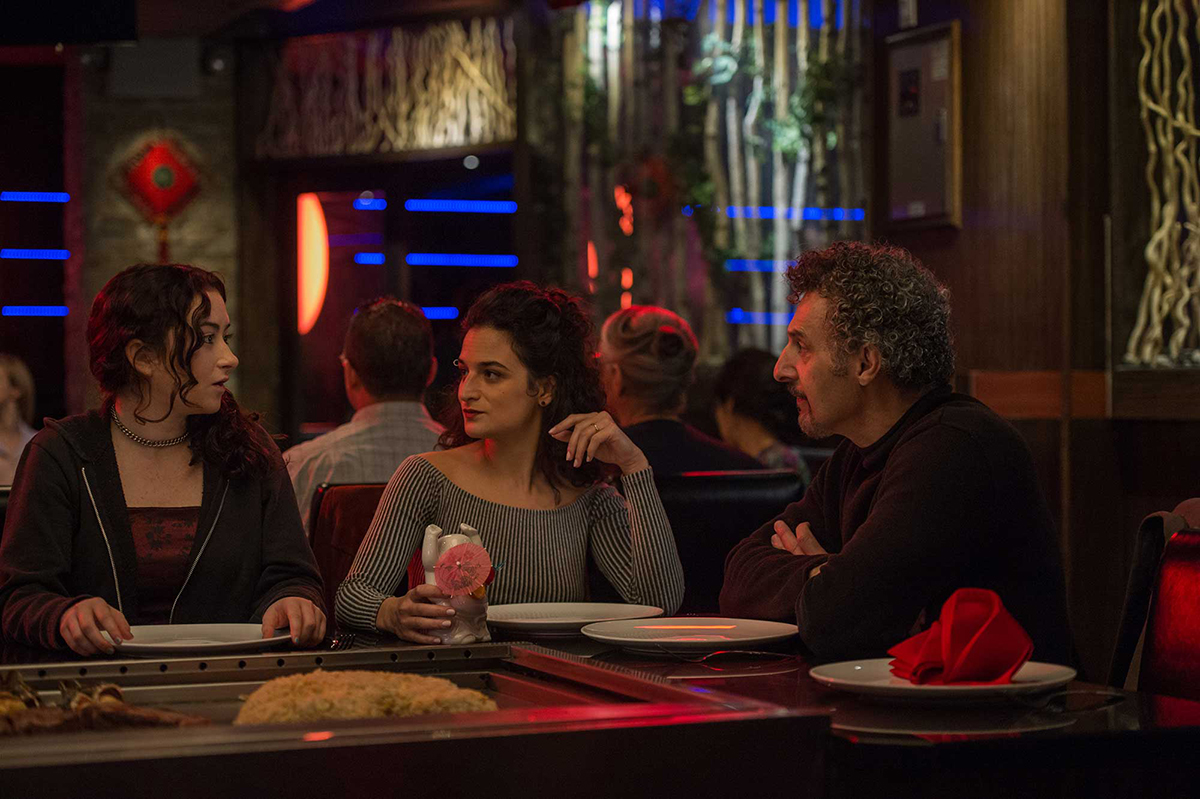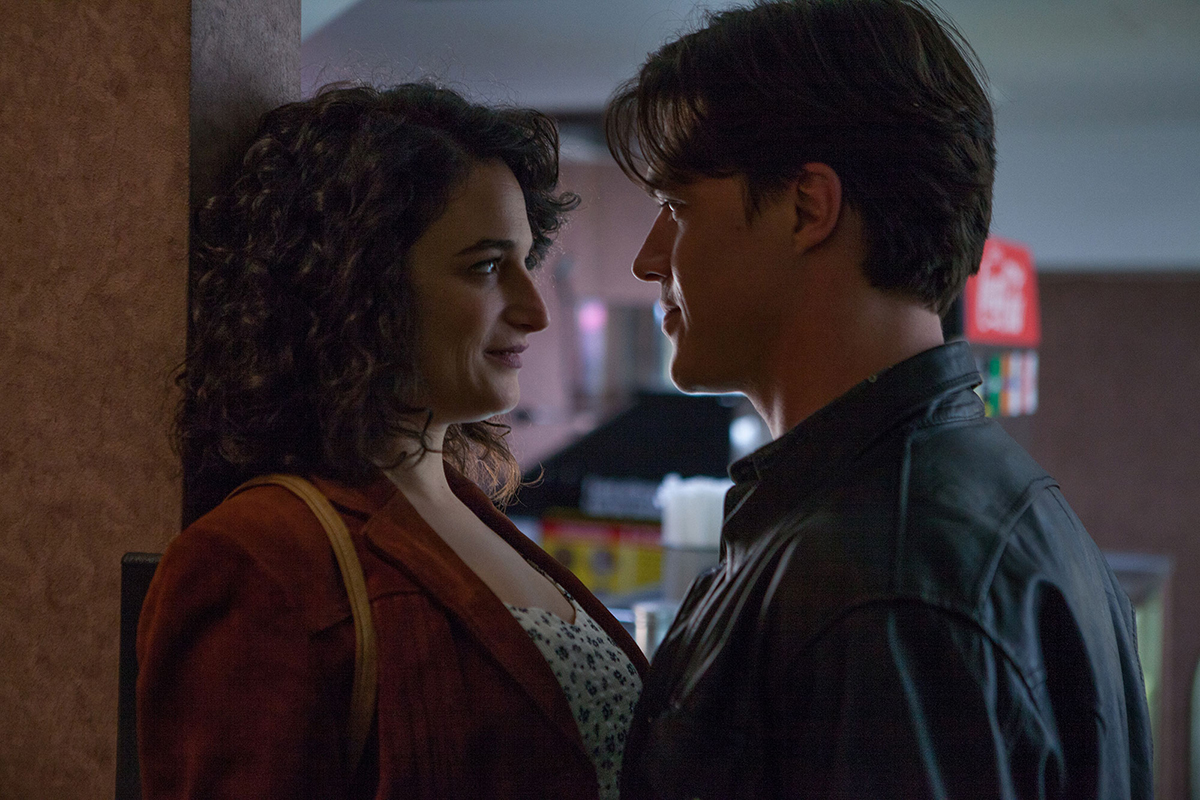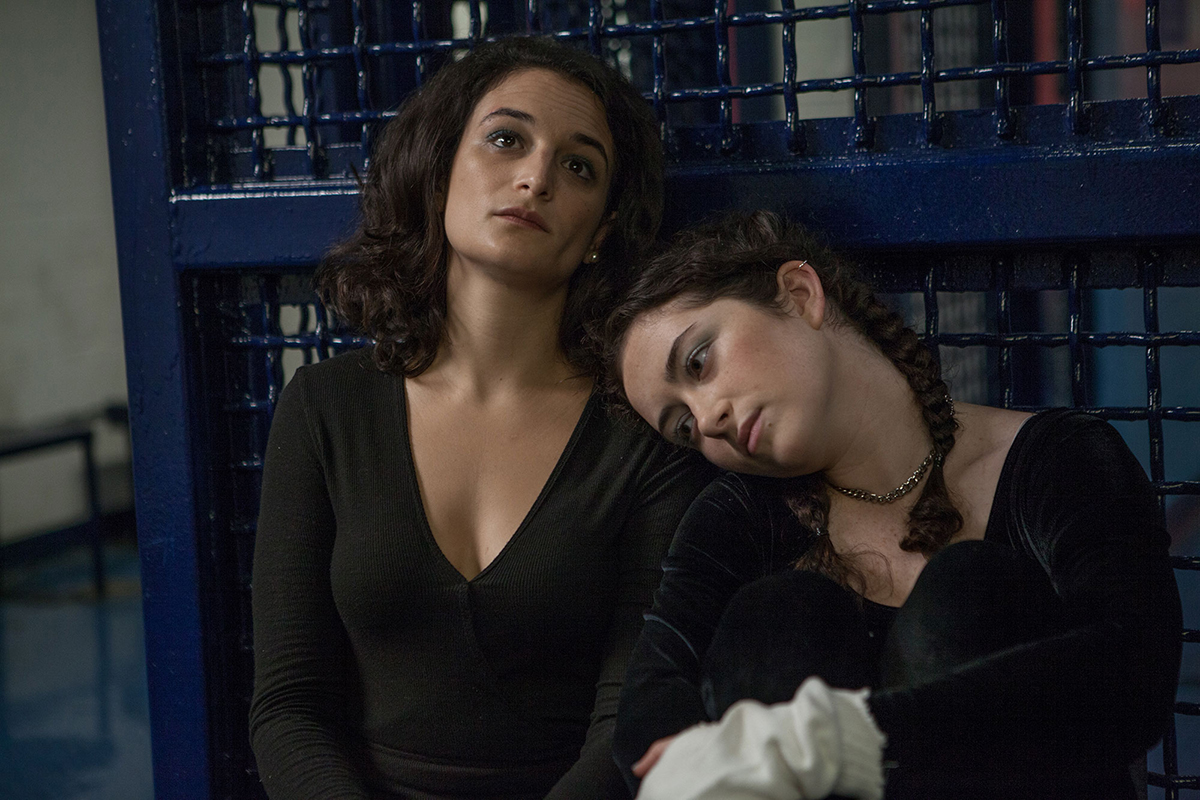Landline should come with a warning for those old enough to remember the mid-’90s. “Watch at your own risk: may cause bouts of uncontrollable nostalgia, extreme hairstyle regret and wistful memories of CD shopping.”
As a follow-up to Robespierre’s 2014 directorial debut Obvious Child, Landline — opening in theaters July 28 — keeps a star (Jenny Slate) and a location (New York City), but broadens its focus from an individual experience to a familial one.

Slate plays Dana, the straight-laced 20-something older sister to snarky high school senior Ali (Abby Quinn), whose parents Pat and Alan (the always wonderful Edie Falco and John Turturro) have an upper-middle-class Manhattan marriage of mutual disregard.
The film opens on Labor Day 1995 to the sounds of Dana and her fiance Ben (Jay Duplass) trying to live out someone’s fantasy of having sex in the woods (most likely Ben’s). “Are you okay?” he asks, “Because I kind a feel like you’re not into it.” (She isn’t, but claims otherwise.)
Such failures in communication are a dime a dozen in Landline. Characters who think they’re on the same page discover they’ve been operating under vastly different assumptions. Equally and opposite, characters who think they’re good at hiding something invariably find out their skills lie elsewhere.

If we reductively identify Obvious Child as “romcom about abortion,” Landline is a “dramedy about infidelity.” When Ali discovers a floppy disk filled with her father’s ardent love poems about a woman he calls “C,” the disillusioned teenager turns amateur detective, printing the texts out on the family’s dot-matrix printer for further study.




